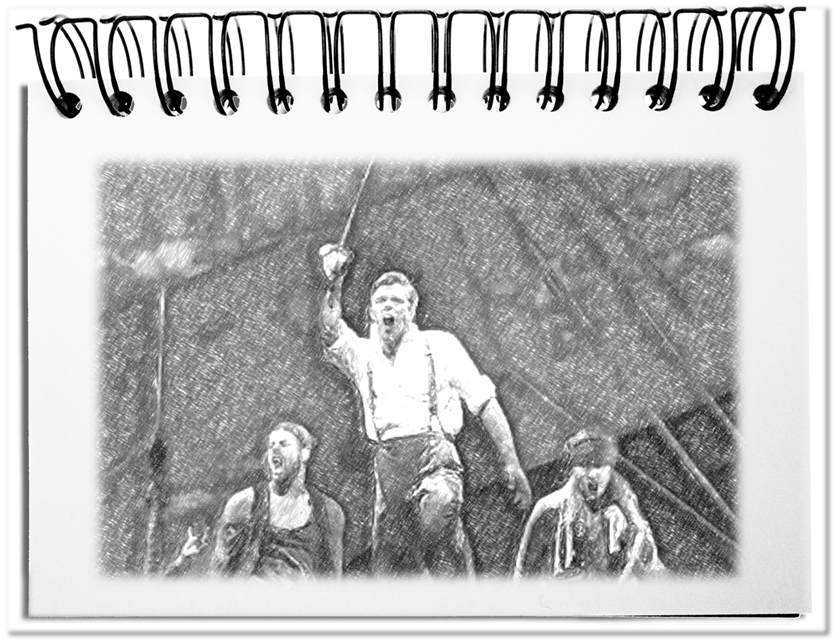Nach Jahren der Organisationsentwicklung ist das lebenslange Lernen mit der Generation Y in der Geschäftswirklichkeit angekommen. Den zwischen 1980 und 2000 Geborenen sind grundlegende Dinge wichtig, wie ihre Gruppen, privat und im Beruf, das Gleichgewicht zwischen Arbeit und Leben, Chancen, wo sie sich beweisen können und Spaß haben. Gleichzeitig sind sie immer online. Leider sind nicht alle Aufgaben die Speerspitze der Neuerungen oder liefern in kürzester Zeit markante Erfolgserlebnisse. Auch darum stellen sich Unternehmen die Frage, was Mitarbeiter begeistert. Vielleicht hilft es, Aufgaben zu Abenteuern zu machen?
Was macht jedoch aus alltäglichen Aufgaben, wie sie tausendfach vorkommen, ein Abenteuer? Eine wichtige Hürde ist dabei die Tatsache, dass Abenteuer im Kopf jedes Einzelnen entstehen. Von außen kann man hierzu nur Angebote machen, die erforderliche Einstellung entwickeln alle für sich selbst. Welche Erklärungen sind der gewünschten Einstellung förderlich?
- Neue Aufgaben sind spannend
Unbekannte Felder müssen erschlossen werden. Es gibt keine Standardlösung, die man abschreiben kann oder sogar muss. Alle Beteiligten sind auf Augenhöhe. Hier kann man zeigen, was man kann. Dass die Aufgaben immer wieder ähnlich sind, stört manche. Damit der Schein des Neuen alles überstrahlt, hilft es die Aufmerksamkeit auf die Dinge zu lenken, die anders sind, die das erste Mal zum Einsatz kommen. Selbst die außergewöhnliche Länge kann diesen Reiz des Unkonventionellen erzeugen. Projekte sind a priori einmalige Aktivitäten und damit noch nie da gewesen. Große Aufgaben sind natürlich immer ein Abenteuer. - Routineaufgaben lassen sich kontinuierlich verbessern
Der Schrecken für den Abenteuerer sind gewohnheitsmäßige Aktivitäten, die sich wiederholen. Darin steckt erst mal nichts Neues, das Begeisterung auslöst. Und doch hat auch die eingeführte Praxis ihre Reize. Neben der kontinuierlichen Verbesserung, die aus jedem Durchlauf und jedem noch so einfachen Ergebnis einen Fortschritt bewirkt, steckt in der Übung die Gefahr des sich Aneignens von unpraktischen Arbeitsweisen, die es eigentlich zu vermeiden gilt. Die regelmäßige Praxis lässt einen die Abläufe so verinnerlichen, dass sie unbewusst abgewickelt werden. So wie Klavierspieler ein Musikstück so oft vom Blatt spielen, bis die Finger die Kontrolle übernehmen und die Musiker sich auf die feinen Nuancen konzentrieren können, genau so schafft es die Routine, sich um die Feinheiten des Geschäfts zu kümmern. Diese Verinnerlichung der Abläufe und die dadurch mögliche Vervollkommnung macht Routineaufgaben zu einem Abenteuer. - Einfache Aufgaben lassen sich optimieren
Selbst einfachste Tätigkeiten, die auf den ersten Blick wenig Begabung zu benötigen scheinen, die meist als Routineaufgaben ablaufen, aber vor allem offenbar kein Genie bedürfen, bieten dem Achtsamen Erfolgserlebnisse an unerwarteten Stellen. Die Bewältigung einfacher Aufgaben scheint unter der Würde gut ausgebildeter Menschen zu sein. Dabei sind es die kleinen Dinge, die die großen erst zuwege bringen. Entscheidend ist die Ausrichtung aller Sinne auf die aktuelle Tätigkeit. Vergisst man die Welt um einen herum und verfliegt die Zeit unbemerkt, entwickelt man die Glücksgefühle, die von Mihály Csikeszentmihályi als Flow bezeichnet werden. Der Blick auf kleinste Unterschiede und Verbesserungsmöglichkeiten, die in der Abwicklung einer simplen Tätigkeit stecken, machen die Abarbeitung zu einem sinnlichen Abenteuer. - Ungewollte Aufgaben erweitern die Fähigkeiten
Das größte Hindernis zu einer abenteuerlichen Aufgabe, sind die Widerstände, die aufgebaut werden, bevor die eigentliche Tätigkeit überhaupt beginnt. Dabei hat dieses Nicht-Wollen oft einfache Gründe. Am schwierigsten ist es, wenn die Betroffenen die Aufgabe nicht kennen – Was ist zu tun? Auf was muss man achten? Wie lange darf es dauern? Und überhaupt warum? Dabei wissen die Auftraggeber meistens die Antwort auf diese Fragen und könnten sie in einer herausfordernden Sprache vermitteln. Manchmal kann die Belegschaft die Aufgabe nicht bewältigen – Wie funktioniert das? Wie soll ich das mit meinen Sprachkenntnissen schaffen? Wie kann ich das ohne Schulung bewältigen? Genau, wie ein Bauer seinen Acker auf die Saat vorbereitet, sollte eine Führungskraft seine Mitarbeiter für eine Aufgabe fit machen. So unglaublich es klingt, aber manchmal dürfen die Mitarbeiter sogar die Aufgaben nicht ausführen. Es gibt Vorschriften, die es ihnen verbieten die Tätigkeit auszuüben, oder weil ein Vorgesetzter anderes mit ihnen vor hat. In diesen Fällen sollte man den Mitarbeitern helfen, indem man ihnen vorab die Erlaubnis einholt. Sollte keiner der drei Fälle zutreffen und sie trotzdem nicht wollen, dann hat der Widerstand tiefere Gründe, die unter Umständen gar nichts mit der Aufgabe zu tun haben. Vielleicht brauchen sie einfach ein neues Beschäftigungsfeld. Gewollte Aufgaben sind immer ein Abenteuer.
Fazit: Die meisten Aufträge sind keine Mission zum Mars. Dies tut jedoch ihrer Abenteuerlichkeit keinen Abbruch. Im Geschäftsalltag gibt es immer neue Aufgaben, die per se abenteuerlich sind. Darüber hinaus bieten auch Routineaufgaben oder einfache Tätigkeiten Abenteuer. Am Ende ist es wichtig, dass die Mitarbeiter selbst den Willen zur Durchführung entwickeln und dafür in die Pflicht nehmen. Selbst die Mission zum Mars wird immer wieder geprobt – eigentlich reine Routine. Da Abenteuer im Kopf stattfinden, d.h. eine Frage der persönlichen Einstellung und des eigenen Verständnisses ist, sollten die Führungskräfte sich darum kümmern, jeder noch so einfachen Tätigkeit den Abenteuergeist einzuhauchen, nach dem Motto: Jede Aufgabe ein Abenteuer.

